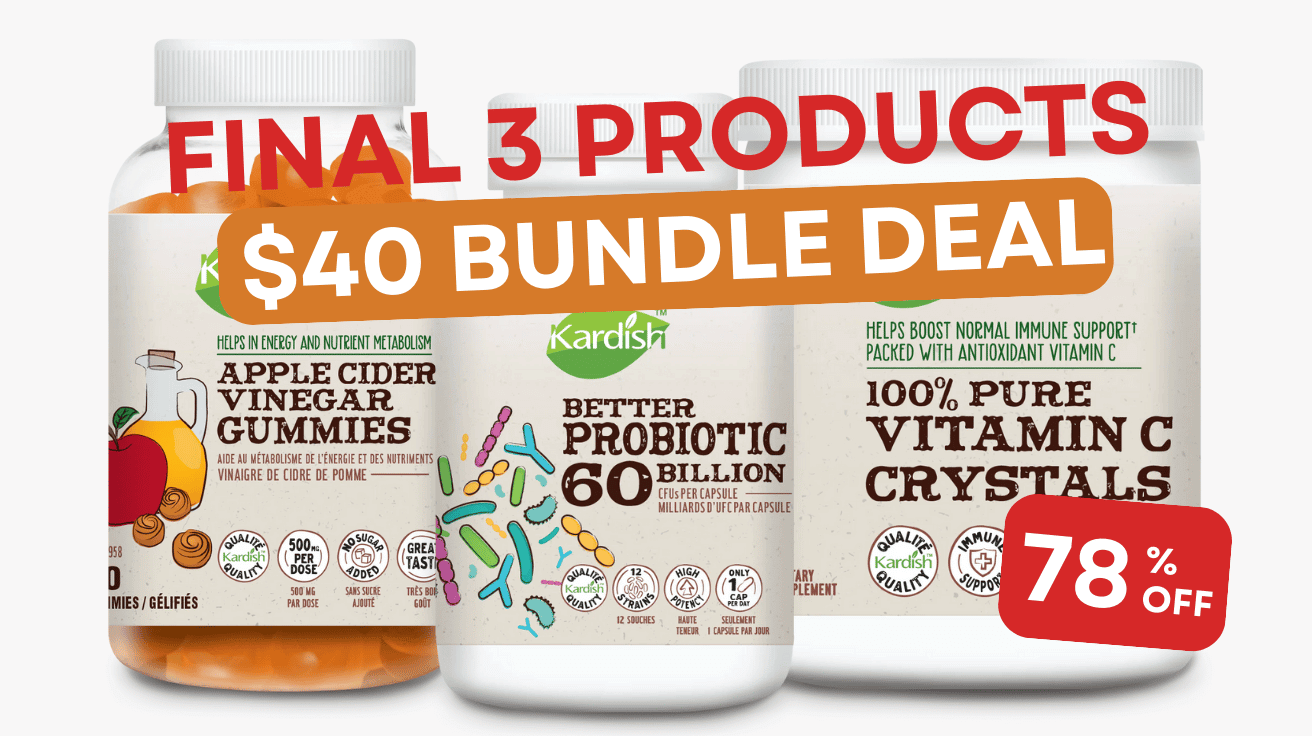
Many of the foods, supplements and even personal care products carried at Kardish are certified organic. But what does that really mean? Since September 17 to 25 is National Organic Week, we thought it would be the perfect opportunity to clear the air and help you better understand the wonderful, sometimes confusing world of organics.
According to Agriculture and Agri-Food Canada, “the organic food market is described by industry analysts as the most dynamic and rapidly growing sector of the global food industry.” We need to take the time to understand why more people are seeking certified organic products, and the positive impact this could have on the world in which we live.
Organic Certification in Canada
You may be familiar with both the USDA Organic certification and Canada Organic. Given that many of the products we purchase are shipped from places like California, we often see the USDA Organic logo on grocery items. Organic products grown and produced within Canada will contain the Canada Organic label which is governed by The Canadian Food Inspection Agency. Only products with 95 percent or more organic content will be stamped with the Canada Organic logo.
Rest assured that products containing GMOs, antibiotics, sulphites, fungicides, preservatives, fumigants and pesticides, and nitrates (among others) cannot be certified as organic. Even organic food packaging and facilities are subject to scrutiny; items or places treated with synthetic fungicides, preservatives, fumigants and pesticides will not quality for organic certification.
Organic for the Environment
Organic farmers must follow strict regulations when it comes to the land that’s used to grow crops as well as the water that surrounds that land. Because organic farmers cannot use synthetic fertilizers or harsh chemicals, it helps to maintain our water systems and nourish the soil.
Organic farming also reduces the use of pesticides and herbicides, agricultural products which have been shown to havenegative effect on insects and wildlife. Organic farming has adopted practices like crop rotation and the use of organic fertilizers which help to nourish the soil. Land used for and surrounding organic farms support habitats for wildlife, attract new species and encourage pollinators and pest predators.
Organic for your Health
Choosing organic can be a healthier choice for ourselves, our families, and the people who grow our food. Conventional farm workers and their families are exposed to a higher concentration of pesticides and are at a higher risk of developing certain types of cancers.
Studies have shown that the fruits and vegetables we eat today do not have the same nutritional profile as those from decades ago. Much of this can be blamed on depleted soil and the push to grow bigger crops that produce larger yields. Organic farming helps to build healthy soil that is rich is important minerals like calcium and magnesium that in turn create healthy food.
Genetically engineered food is a topic of much debate these days. With the threat of the DARK Act in America and lack of any GMO labelling regulations in Canada, many people find themselves scratching their heads. For those who would prefer to stay clear of these crops, know that organic is the only non-GMO standard overseen by the Canadian government. The only true way for a consumer to know if the product being purchased is non-GMO is to buy certified organic orNon-GMO Project Verified products.
While it may be difficult for some people to buy organic one hundred percent of the time, looking to theEWG’s Dirty Dozen or local farmers markets can be a great way to save money while supporting organic, improving your health and supporting the environment.



Leave a comment (all fields required)